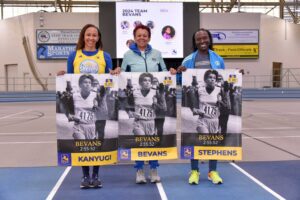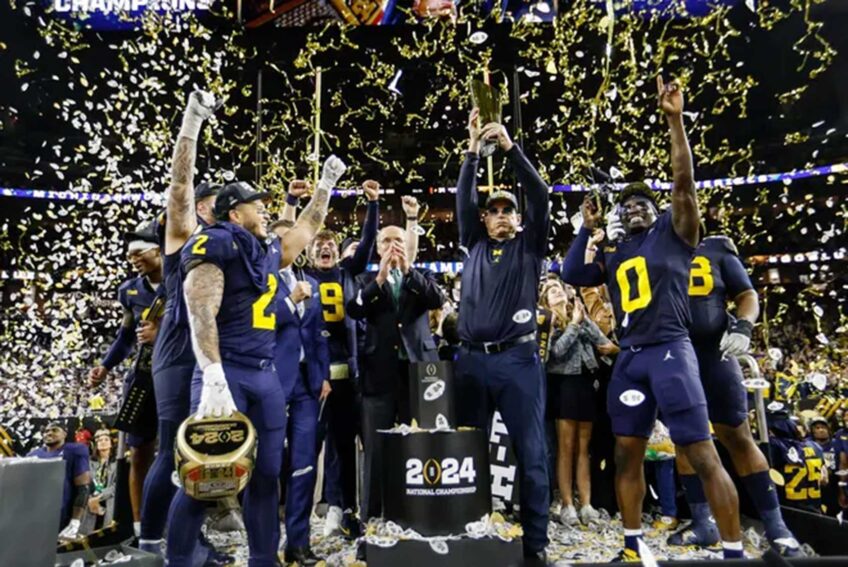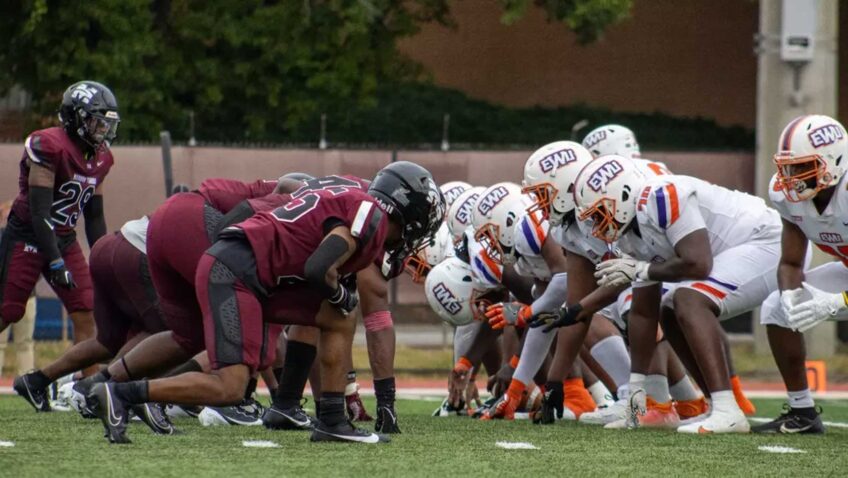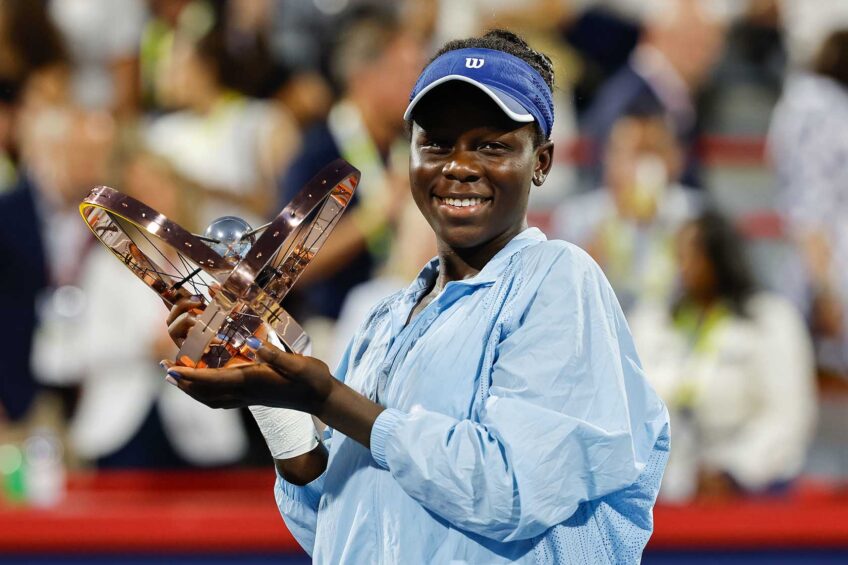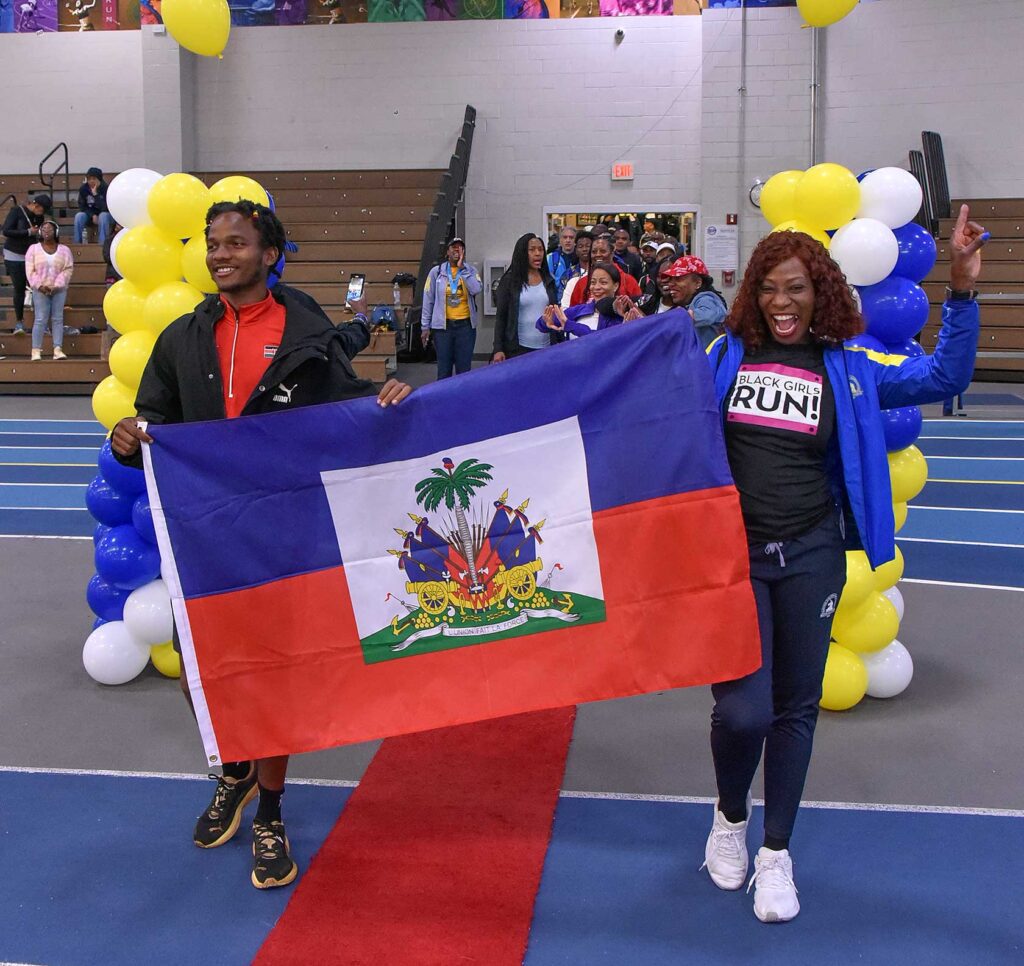
Banner Sports Sponsored by the Patriots Foundation
According to a 2020 survey by Running USA, only about 9% of runners are Black or African American.
Among the ranks of long-distance runners, that number falls to just 3%. One local Boston group wants to increase those numbers by welcoming Black runners from all over the world with open arms.
Black Unicorn Marathoners co-founder Rochelle Solomon said the group doesn’t just connect runners, it also serves to connect the Black and brown communities of Boston with the sport of long-distance running.
“We connect the finish line to communities of color. Because let’s be real, most of the events around the Boston Marathon don’t happen in brown and Black neighborhoods,” she said. “So we’re very intentional about where the events happen.”
That’s why the group picked the Reggie Lewis Track & Athletic Center in Roxbury this year as the center of their operations.
For the last few years, the Black Unicorn Marathoners have made it their mission to “celebrate and connect” BIPOC runners associated with the Boston Marathon. Their outreach includes everyone from qualifiers to charity supporters, invitational entrants, alumni and everyone in between.
The group’s annual Celebrate & Connect Event takes place the Saturday before the Boston Marathon. It starts with a procession of Black runners from all over the world who have made their way to the City on a Hill.
“We host an event where we celebrate the runner. The runners get to walk in with a procession, and then each runner gets the opportunity to introduce themselves,” Solomon said.
This year, more than 100 people participated, she said, and the group hopes that number continues to increase year after year.
Many hours go into planning an event of this magnitude, but Solomon shared what it means to see all of those smiling Black faces.
“It feels amazing, you know, seeing your work unfold. I love seeing the enjoyment on everyone’s face and how excited they are to meet a new person or see someone they haven’t seen in a long while,” she said.
Solomon said she hopes the feelings generated at the Celebrate & Connect Event last well beyond race weekend for participants.
“I hope the individuals that came to the event feel connected, supported, and feel like if they had to come back to Boston, they could connect with the community here,” the co-founder said.
In a sport where people of color make up such a small minority, Solomon said, it’s important to find your place in it and carve out a sense of belonging.
“Being a Black marathoner is a subculture. Many of us find each other on Facebook. Through social media channels, you can find someone who not only understands what you’re doing, but the training involved. It’s a place of safety, but also serves as a place to get information and education,” she said.
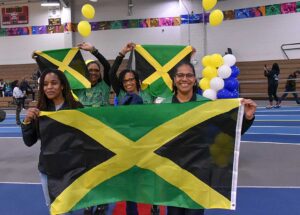
Runners from around the world participate in Black Unicorn Marathoners’ Celebrate & Connect Event. PHOTO: CRAIG BAILEY/PERSPECTIVE PHOTO
Even though Solomon spends her time making safe spaces and a community for Black marathoners, she started her own running journey looking for a place to belong.
“When I started running, it was because I didn’t want to go home and sit on the couch. I was nursing heartbreak. And if I were to look back at myself, at the person I was at that time, I would be shocked at the things that I’ve been able to see through running,” she said. “Running can open doors. Running has surprised me with some of the opportunities I’ve been given. I’m happy that I started running. I wouldn’t be the person I am now. It opened up my horizon. It gave me a voice.”
Solomon said there is definitely room in running for more events geared toward Black runners and marathoners.
“There is space for more races to pop up in Boston. One of the Black Unicorn Marathoners co-founders, Thaddeus Miles, started the first 5K in Roxbury,” she said.
For anyone curious about running or wanting to be more active, Solomon said, there are plenty of free ways to get started.
“Whether someone wants to learn how to walk more efficiently or actually run, there’s free sessions around Boston with HoodFitMA,” she said, referring to the physical and mental wellness group Miles founded 10 years ago.
“You don’t have to pay for a coach, because it’s free,” she added. “It’s happening right here in Boston, so I hope more folks will utilize this free training.”

